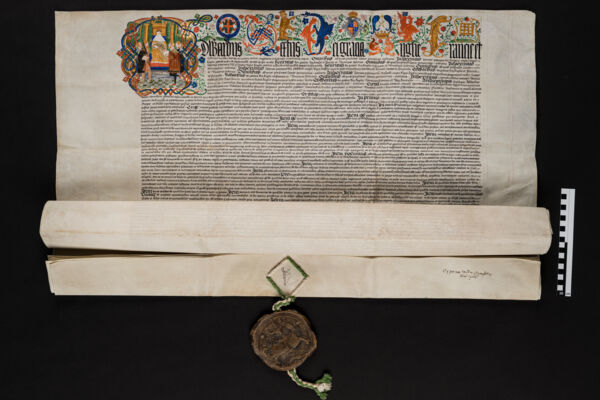With this decision, a total of 17 outstanding documents on the history of the Hanseatic League will be inscribed in the register. From the countless historical sources on the Hanseatic League from Bruges to Novgorod, from Bergen to Braunschweig, 17 documents from six European countries were selected in an international process that can exemplarily convey the nature and work of the Hanseatic League. In addition to the archives of the Hanseatic City of Lübeck, the state and city archives in Braunschweig, Bremen, Hamburg, Cologne and Stralsund are represented, as well as partner institutions in Belgium, Denmark, Estonia, Latvia and Poland.
Unique documents and records are now registered as UNESCO World Documentary Heritage: trade privileges and treaties of alliance, minutes of Hanseatic days (recesses), customs lists from Hanseatic cities, merchant's letters from Hanseatic merchants as well as documents on the Hanseatic Kontors on the territory of today's Europe. They exemplify the nature and history of the Hanseatic League, which shaped the history of northern Europe for over 600 years. The cities and merchants formed a far-reaching trade network across sovereign, cultural and linguistic borders. Hanseatic economic relations also led to cultural exchange in language and architecture, art and law. In this way, the Hanseatic League also promoted the pre-national growing together of regions and people. In their entirety, the archival documents document the unique historical phenomenon of the Hanseatic League.
Read more here (in German).

